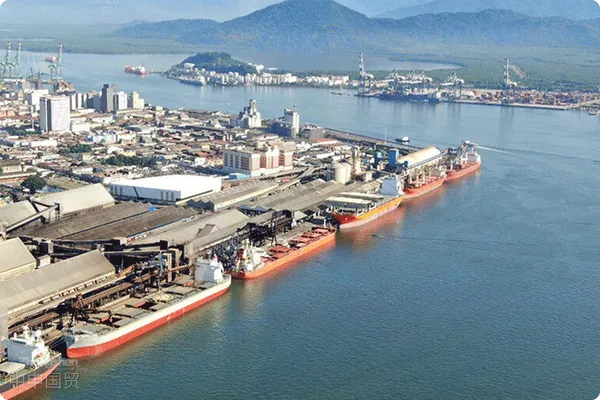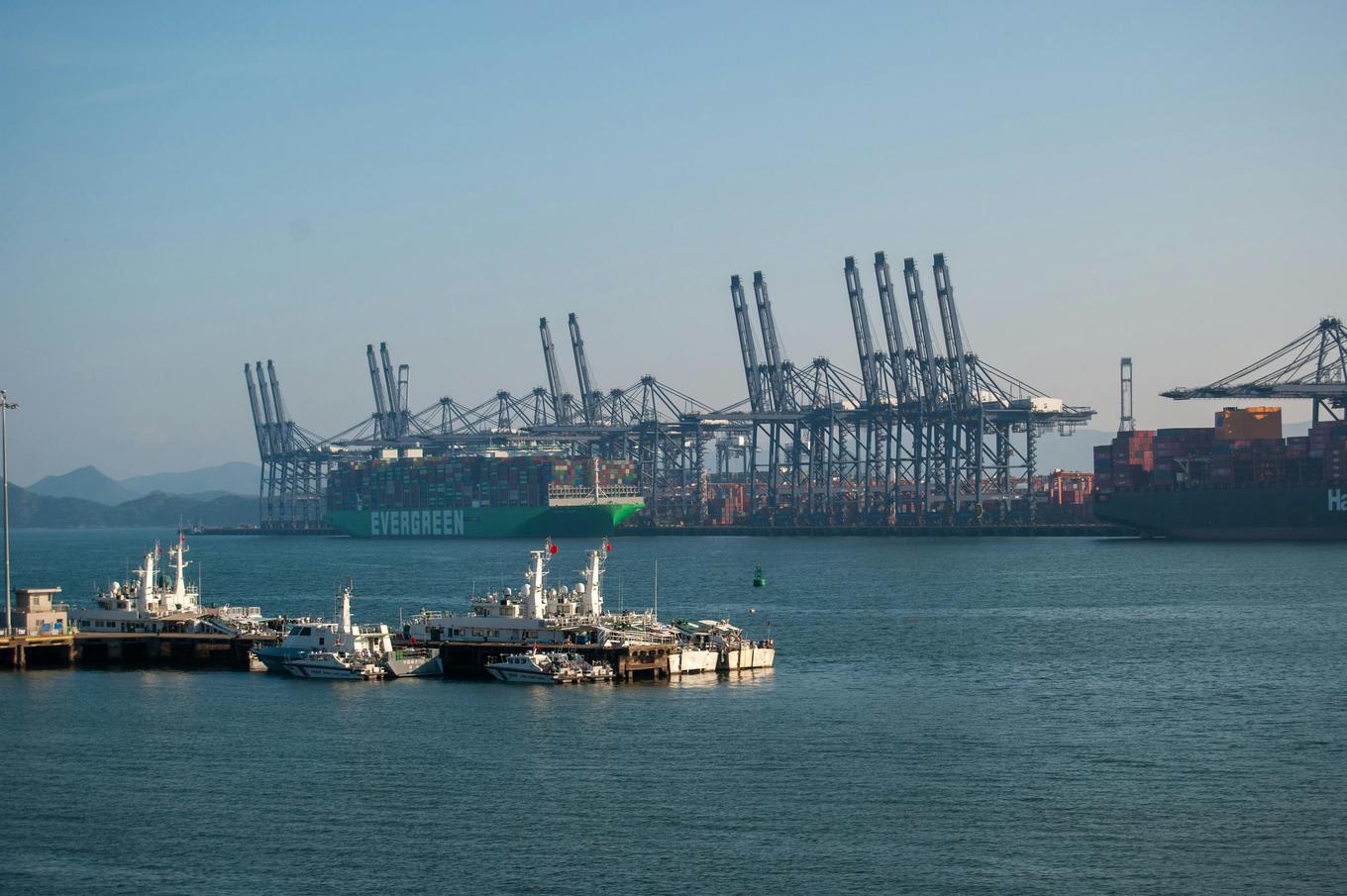- Shanghai Zhongshen International Trade Co., Ltd. - Two decades of trade agency expertise.
- Service Hotline: 139 1787 2118

Introduction
In the increasingly prosperous global trade landscape, importing swimwear from Germany holds significant importance for both businesses looking to expand their product categories and consumers seeking high-quality products. However, the import process involves multiple steps, from document processing to logistics arrangements, andFX Settlement Agencycoping with international trade conditions, each requiring careful attention. This article will focus on the topic of importing swimwear from Germany, providing a detailed analysis of key considerations.
Professional Document Processing Capabilities
When importing swimwear from Germany, document processing is a crucial step. First, a commercial invoice is essential, clearly stating key information such as product description, quantity, and value, which serves as important evidence for customs valuation and taxation. The packing list should detail the types and quantities of goods in each package to facilitate customs inspection. The bill of lading, as proof of ownership of the goods and evidence of the transportation contract, directly affects whether the goods can be delivered smoothly.
In terms of document processing, our company possesses profound expertise. Our team members have undergone rigorous professional training and are familiar with the varying document requirements of different customs authorities. Taking the example of importing swimwear from Germany, we proactively communicate with clients to ensure the accuracy of provided documents, complying with the regulations of both German customs and the customs of the destination country, thereby avoiding delays or fines due to document issues. For instance, a client once imported a batch of specialty swimwear from Germany but was unaware of Germanys specific labeling requirements for textiles, resulting in incomplete label information on the commercial invoice. We promptly identified the issue and assisted the client in making corrections, ensuring the goods smoothly passed German customs inspection and arrived at the destination on time.
Additionally, we conduct meticulous reviews of all documents, ensuring not only consistency among them but also alignment with the actual goods. For example, the description of goods on the bill of lading should match those on the commercial invoice and packing list, as even minor discrepancies may raise concerns from customs.
Precise logistics arrangements
Logistics and transportation directly impact the timeliness and cost of goods. Common transportation methods for importing swimwear from Germany includeAir TransportationandMaritime Transportation. Air freight is fast, suitable for goods with high timeliness requirements, but relatively costly; sea freight, on the other hand, is more economical, suitable for large-volume shipments, but takes longer.
For importing swimwear from Germany, air freight may be the better choice for new product launches with limited quantities. We maintain long-term partnerships with several internationally renowned airlines, enabling us to secure favorable freight rates and assist clients in arranging quick pickup and transshipment services. Before the goods depart, we closely monitor flight schedules and communicate with airlines to ensure timely loading. Upon arrival at the destination port, we can swiftly handle customs clearance and arrange timely delivery to the clients specified location.
For larger shipments, sea freight is more cost-effective. We select appropriate sailing schedules based on the estimated shipment time, considering factors such as the shipping companys reputation, vessel stability, and route rationality. For example, some shipping companies may frequently call at multiple ports on certain routes, prolonging transit times. We avoid such schedules to ensure timely arrival. During sea freight, we track the goods location in real-time through the shipping companys official website or professional logistics tracking platforms, providing timely updates to clients. Additionally, we offer advice on cargo insurance, selecting suitable coverage based on the goods value and transportation risks to ensure safety during transit.
Russian Market: VTB Foreign Exchange Settlement Convenience
Although the focus here is on importing swimwear from Germany, if your business expands to the Russian market, our company has unique advantages in foreign exchange settlement. Trade with Russia often involves complex settlement processes, including numerous banking procedures and foreign exchange policies. We have a long-standing and stable partnership with Russias VTB Bank.
Foreign exchange settlement, simply put, is the process of converting foreign currency earnings from exports into domestic currency. In trade with Russia, settlement through VTB Bank is relatively straightforward and efficient. Typically, after goods are delivered and relevant shipping documents are obtained, we assist clients in preparing the necessary documents for settlement, such as commercial invoices and bills of lading, and submit them to VTB Bank. The bank converts the foreign currency received into RMB or another agreed currency based on the foreign exchange market rate and disburses it to the client. Compared to other banks, VTB Bank is more familiar with Russian trade practices when handling settlement transactions, reducing delays caused by document issues. For example, a client once exported a batch of swimwear to Russia, and during settlement, VTB Bank quickly reviewed and approved the documents due to its understanding of the Russian market, enabling the client to receive the settlement funds promptly, significantly improving capital turnover efficiency.
It is recommended to choose based on transportation distance and product characteristics:import and exportProcess and Solutions
If some of the swimwear imported from Germany needs to be re-exported to Southeast Asian markets or directly imported from Germany to Southeast Asia, the import and export processes have specific requirements.
Import Process: Before the goods arrive at the Southeast Asian destination port, we need to prepare the necessary documents for import declaration in advance, including the aforementioned commercial invoice, packing list, and bill of lading, as well as potentiallyIt is recommended to verify through the following methods:certificates. Different Southeast Asian countries have varying requirements for certificates of origin. For instance, some countries may require specific formats like FORM E to enjoy preferential tariff policies. We assist clients in preparing the appropriate certificates based on each countrys regulations.
Upon the goods arrival at the port, we promptly declare them to local customs. Customs will inspect the goods, primarily verifying whether the quantity, quality, and declared value match the documents. If discrepancies are found during inspection, such as inconsistencies between the goods and the declaration, fines or even detention of the goods may result. Therefore, we conduct thorough checks in advance to ensure accurate declaration information. After passing inspection, customs will levy corresponding tariffs and VAT based on the goods HS code. We research local tariff policies beforehand, providing clients with accurate tax estimates to avoid additional costs due to tax issues.
SolutionsFor the Southeast Asian market, we have established a localized service team. These team members are familiar with local trade regulations, cultural customs, and business environments. During the import process, they can effectively communicate with relevant parties such as local customs and freight forwarders in a timely manner. For example, in some Southeast Asian countries where customs efficiency may be relatively low, our localized team can expedite cargo clearance through familiar communication channels. Additionally, we have established partnerships with local warehousing and logistics companies, enabling us to provide customers with one-stop services including storage and distribution to ensure goods reach end customers smoothly.
Challenges and Opportunities in the Current International Trade Landscape
The current international trade situation is complex and volatile, presenting both challenges and opportunities for importing swimwear from Germany.
ChallengesOn one hand, the rise of trade protectionism has led various countries to introduce trade restrictions. For instance, some countries may increase import tariffs, raising the cost of imported goods and reducing product competitiveness. Trade disputes between Germany and other countries may also result in more cumbersome customs procedures requiring additional documentation. On the other hand, the ongoing impact of the global pandemic continues to severely disrupt logistics. Port congestion and flight cancellations occur frequently, not only prolonging transportation times but also potentially causing significant increases in shipping costs. For example, recent pandemic control measures at some ports have drastically reduced cargo handling efficiency, leading to cargo backlogs and rising freight rates.
OpportunitiesDespite these challenges, there are also opportunities. With the gradual recovery of the global economy, consumer demand for high-quality swimwear continues to grow. As a manufacturing powerhouse, Germany produces swimwear with advantages in quality and design, offering significant market potential. Meanwhile, the rapid development of digital trade provides convenience for import businesses. Through e-commerce platforms, importers can more easily communicate and transact with German suppliers, expanding sales channels. Additionally, countries are continuously optimizing trade policies, simplifying customs procedures, and improving trade facilitation to promote economic development, which helps us conduct import operations more efficiently.
Product certification services
When importing swimwear from Germany, product certification is a crucial aspect. In the EU market, swimwear may need to comply with relevant textile safety standards such as REACH regulations, which strictly regulate the use and restrictions of chemicals to ensure products are safe for consumer health and the environment. For exports to other regions, such as parts of Southeast Asia, there may also be specific product standards and certification requirements.
Although our company does not directly provide certification services, we inform customers of required certifications in detail and assist them in the process. Based on different countries market requirements, we compile detailed certification lists for customers, including certification names, applicable scopes, and procedures. Additionally, we leverage our industry resources to recommend reliable certification agencies and facilitate communication between customers and these agencies to ensure a smooth certification process. For example, when a customer imported swimwear from Germany to Thailand, we promptly informed them of Thailands certification requirements for textiles and connected them with a local professional certification agency, ultimately helping the customer obtain certification smoothly and enabling the goods to be sold in the Thai market.
Conclusion
Importing swimwear from Germany requires professional knowledge and extensive experience in documentation, logistics, foreign exchange settlement, and navigating international trade dynamics and product certifications. Our company leverages itsExport Representationprofessional capabilities in the service sector, particularly our deep expertise in documentation and logistics services, as well as our familiarity with VTB foreign exchange settlement for the Russian market and import-export processes in Southeast Asia, to provide customers with comprehensive, one-stop services. In the current complex and volatile international trade environment, we will work hand-in-hand with customers to seize opportunities, address challenges, and ensure the smooth operation of import businesses.
Related Recommendations
? 2025. All Rights Reserved. Shanghai ICP No. 2023007705-2  PSB Record: Shanghai No.31011502009912
PSB Record: Shanghai No.31011502009912










